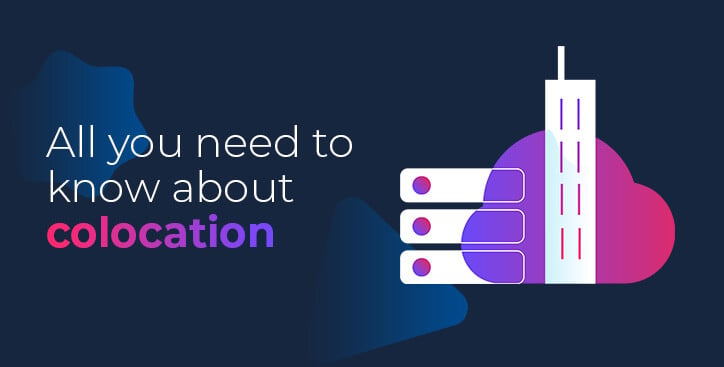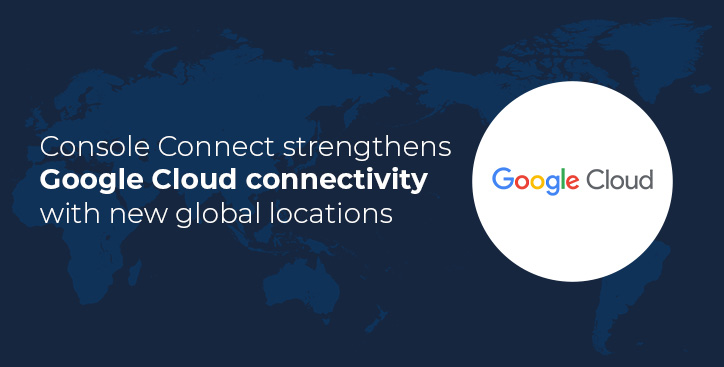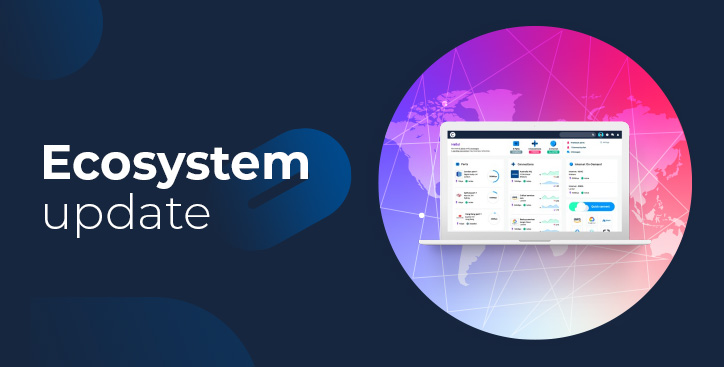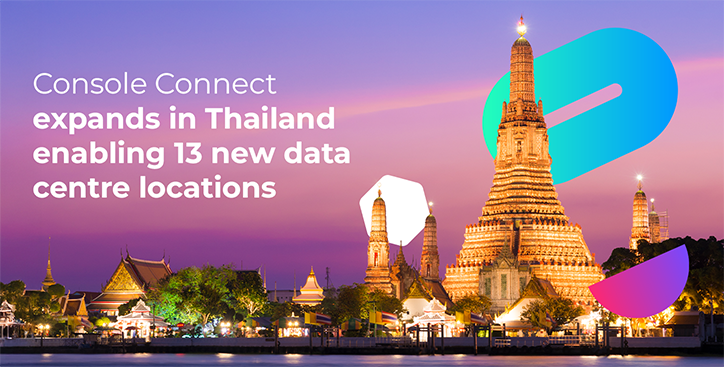All you need to know about colocation
By Lily Bennett|17 September, 2024

While it’s easy to think that everything is now in the cloud, there are still some use cases and some businesses that need private data centres. In this blog, we look at the benefits of colocation and explore the key considerations for businesses when choosing colocation services.
Colocation, often shortened to ‘colo’, is a service provided by data centre owners and operators where the floor space and facilities, including electricity and connectivity, are rented to private enterprises. This gives businesses that need to be able to deploy their own private servers, the capability to do so without any of the overheads or requirements that come with it.
Buying or building custom servers for your specific use case is one thing, housing them and operating them is quite another. Think of the data centre as the building and colocation as the service that enables you to use that building and its facilities.
Decades ago, before the cloud explosion, it was common to have a private data centre - or ‘server room’ - in the office building. Even then there were considerations around floor space, ample electrical sockets, and keeping the temperature down. Connectivity was largely restricted to ethernet cabling to the office LAN because most of the users were in the same building, with maybe a few VPN links for the ‘road warriors’.
Today, high-bandwidth connectivity is a significant concern, because your users are unlikely to be in the same building. Because of the complex applications we run and vast amounts of data we store, servers are also much more power hungry and generate a lot more heat.
Trying to create an appropriate environment for your private server farm on your own real estate is a headache, which is why many businesses opt to leave this to specialist providers and go down the colocation route.
Benefits of colocation
Colocation allows businesses to benefit from private data centre infrastructure, without having to build or maintain their own facility.
For colocation providers, the business is very real estate focused - it all comes down to location, location, location.
They need ample space for the building in a geographical location where there is demand for their services, good access to a reliable electricity grid, and most importantly, good access to backbone connectivity that will enable connections into internet exchanges and cloud ecosystems.
For businesses and enterprises that will be customers of the data centre operator, colocation can offer many benefits, including but not limited to: improved connectivity, increased security, and lower costs and overheads.
Customisable infrastructure
This is the primary reason to go down the colocation route. In some cases it’s the only option when public cloud services or off-the-shelf solutions won’t cut it. Colocation facilities allow companies to deploy their own custom or bespoke hardware they can’t get anywhere else.
Enhanced data security or compliance
Another key reason to deploy your own infrastructure in a colocation facility is that you know you are the sole tenant and owner of the servers. This can greatly increase your data security and also help maintain regulatory compliance with stringent frameworks like ISO, SOC 2, or HIPAA.
Cost efficiency
Not having to build and maintain your own specialist data centre means obvious cost savings associated with physical infrastructure. But by sharing power, cooling, and physical security of the building with other tenants, companies can benefit from economies of scale, leading to reduced ongoing costs.
Enhanced physical security
Which brings us to enhanced physical security. Colocation facilities usually have round the clock security personnel combined with comprehensive security measures, including biometric access control and 24/7 surveillance. Again, you benefit from sharing the cost of this with other tenants.
Enhanced connectivity
Just as with building location and electricity access, colocation facilities usually provide high speed connectivity into a variety of ISP backbones and public cloud ecosystems, offering a great deal of redundancy and competitive pricing.
Many colocation centres are also physically located in major business and communication hubs, reducing latency for your applications and improving network performance.
Geographical reach
Colocation providers are rarely single data centre operations and will often have facilities in multiple locations either in one region or globally. This can help businesses expand into new regions without having to set up local data centres or need to embark on a relationship with a new partner in a different region.
Data centre operators will typically have high bandwidth, low latency networks between their facilities so you can expand into different data centres without impact on your connectivity.
Scalability
If you need to scale up your infrastructure by adding more servers, you just rent more space in the colo facility. This can be a huge benefit for rapidly growing businesses and is sometimes called a Pay-as-You-Grow model.
Furthermore, if you need to downsize, you can reduce your footprint in the facility and not be stuck paying for empty real estate.
Reliability and redundancy
Colocation facilities will have excellent electricity infrastructure and cooling and will often have UPS systems or backup generators to ensure the power never goes out.
Those with multiple interconnected locations will also be able to provide geographic diversity for disaster recovery and redundancy purposes. Some will even have specialist technical staff on site which can intervene in an emergency, although this is typically a premium offering and you are generally responsible for your own kit.
Business efficiency
Not having to deal with the data centre facility itself frees up your infrastructure manager’s time to focus on your IT workloads, applications, and business operations - in short, things that drive revenues, not costs.
Key considerations when choosing colocation services
Although many of the benefits above seem obvious and even attractive to most businesses, when planning a colocation initiative of your own you need to consider some subtle nuances.
There are several key factors worth considering to ensure that the colocation strategy aligns with business objectives, operational needs, and technical requirements.
Location
Is the colocation facility near your company’s main operations or customer base? If yes, it can reduce latency and improve performance. If not, it can make both of these factors worse.
Remember that you are responsible for your equipment inside the facility, so your specialist employees also need to be able to get to the campus easily.
Another consideration for some regions, is whether the facility is in a natural disaster area prone to earthquakes, floods, or hurricanes.
Scalability
When choosing a colocation facility, ensure you check what the current occupancy levels are and how fast it is filling up. Just because the building is mostly empty on your walk round doesn’t mean some hyperscaler hasn’t already reserved 80 per cent of the real estate.
If you suddenly need to acquire more space to grow and there is none available, it could spell disaster for your plans. In this case you might consider reserving additional space ahead of time, but be sure to check the contracts can accommodate future changes in your needs, such as space, power, or bandwidth, without long-term financial penalties.
Connectivity
If your infrastructure requires connections to public cloud services, ensure the colocation facility provides direct, low-latency connections to the major cloud providers like AWS, Azure, Google Cloud, or whichever ecosystems you use.
For non-cloud and internet connectivity, consider how well the facility supports low-latency connections, especially if the business involves real-time data processing, such as trading, content delivery, or communications.
Reliability and redundancy
Assess the facility’s main and redundant power and cooling systems. Look for features such as backup generators, UPS systems, and multiple power feeds.
Also evaluate the Service Level Agreements (SLAs) offered by the colocation provider regarding uptime and ensure it meets your needs, and also establish what the facility's disaster recovery plans are in case of a major outage.
Physical security
A building full of very expensive servers is an obvious target for criminals. Ram raid type heists are not unheard of in the colocation sector. Ensure the facility has robust security measures in place, including access control, video surveillance, concrete barriers, and 24/7 onsite security personnel.
Infrastructure facilities and support
Although you are typically responsible for your own equipment, you still need to see how the colocation provider can handle your specific infrastructure requirements around racks, cages, private suites, or tailored power and cooling arrangements.
If you are taking on a premium support service as well, establish whether 24/7 support is available and what SLAs and specific services are provided, especially if you have global operations or critical systems that require constant uptime.
Costs
Although it’s an obvious one, you need to ensure that the pricing structure is transparent, with clear understanding of the cost for space and services and additional charges that may apply for bandwidth overages, power usage, or out-of-scope additions.
It’s also worth finding out how easy it is to exit the contract and any potential penalties for early termination.
Access colocation services worldwide
Colocation can be a savvy strategic move in the age of rapid digital transformation, allowing businesses to rent space for IT infrastructure rather than owning it, and expanding rapidly as the business demands.
Did you know that you can order and manage colocation services via the Console Connect platform? Our Marketplace is home to a global community of data centre providers, where you can buy fully customisable and flexible colocation solutions from Equinix, Digital Realty, AtlasEdge, Global Switch, NEXTDC, DataBank, PDG and Netrality.



.jpg)





.jpg)